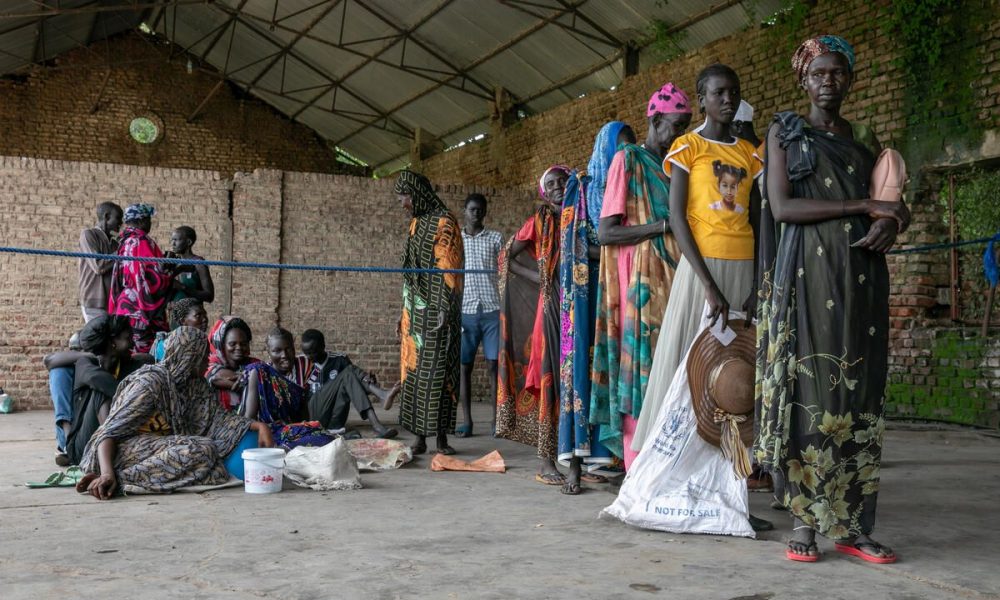By Aweye Teddy Onam
World Food Programme (WFP) appeals for an urgent $120 million to increase support to people fleeing Sudan war into South Sudan.
In a press statement obtained by this outlet yesterday, WFP Country Director Mary Ellen Mc Groarty stated that the UN food agency has a funding gap of $ 536 million in South Sudan.
She noted that WFP was only able to reach 40 percent of food-insecure people with food assistance in 2023. And those who are receiving assistance only receive half rations due to funding shortfalls, which is further entrenching food insecurity.
The UN World Food Programme warned of a looming hunger emergency on the border between South Sudan and Sudan as families fleeing fighting in Sudan continue to cross the border every day.
“We are seeing families leave one disaster for another as they flee danger in Sudan, only to find despair in South Sudan,” said McGroarty.
“The humanitarian situation for returnees is unacceptable, and WFP is struggling to meet the mounting humanitarian needs at the border. We simply do not have the resources to provide life-saving assistance to those who need it most,” she continued.
According to new data gathered by WFP among the nearly 300,000 people who have arrived in South Sudan in the last five months, one in five children is malnourished, and 90 percent of families say they are going multiple days without eating.
Almost all of those who have crossed the border since fighting broke out in Sudan in mid-April are South Sudanese, and they are returning to a country already facing unprecedented humanitarian needs.
A new food security assessment completed by WFP shows that 90 percent of returnee families are experiencing moderate or severe food insecurity.
Screening data from the border crossing found that almost 20 percent of children under five and more than a quarter of pregnant and breastfeeding women are malnourished.
Meanwhile, McGroarty said the rainy season has made conditions at crowded transit centers and border crossings even more difficult, with flooding worsening food insecurity and contributing to the spread of disease.
Also, many families report being robbed and experiencing violence as they escaped the war in Sudan and are crossing the border to South Sudan with nothing but clothes on their backs, according to the WFP.
Those arriving today are in an even more vulnerable condition than families that fled in the early weeks of the conflict.
Significant resources are also needed to help people move onward from the crowded transit centers at the border entry points and to support them as they rebuild their lives in South Sudan.
Most returnees and refugees are in transit centers, mainly in Polouch, Renk, and other parts of the country along the Sudan border stretch.




